Recent Alumni
Why We Came to Minnesota
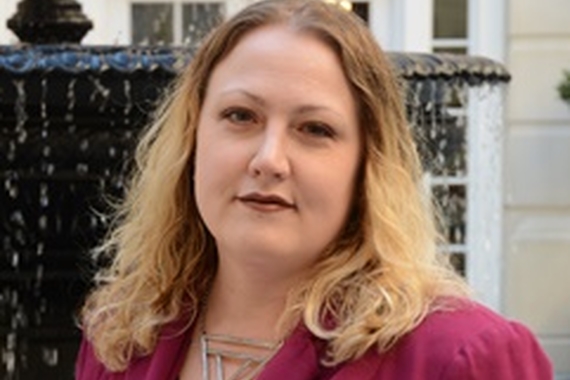
Danielle Docka-Filipek (Ph.D. awarded 2013)
Assistant Professor
Department of Sociology, Social Work and Anthropology
Christopher Newport University, Newport News, VA
Initially, I was drawn into the program by the sizable number of Minnesota faculty doing compelling qualitative work on inequalities and institutions. In particular, the American Mosaic Project was an intended research opportunity for me, and I learned a good amount of what I now know about sound ethnographic and interviewing methodology while working with the AMP. Overall, there were also a good amount of concrete resources for graduate student research, and I knew I could take advantage of those material opportunities.
I was also very attracted to the collegial student culture. I knew I would not thrive in a competitive environment, and collaboration was very important to me. I found that collaborative spirit at Minnesota, as the graduate students seemed genuinely very welcoming and enjoyed the time they spent with one another--both working and playing.
Additionally, the department seemed to be one that took good teaching seriously. I knew from the moment I entered graduate school that my career goal was a teaching position in a small liberal arts school, so I needed to be in a graduate program that would offer me independent opportunities to teach my own classes with creative control and sound mentorship in teaching. Minnesota provided both. Lastly, interdisciplinary programs such as Gender, Women's, and Sexuality Studies and American Studies provided me with additional pedagogical and methodological training, as well as support from outside of the program, which were important priorities for me.
I am a first generation college student, and I needed a program that took all of the strengths and limitations that come with that identity very seriously. I needed more resources than some. I needed more time than some. I needed more support than some. I had a number of very difficult life events happen, I developed a handful of chronic illnesses (as the upwardly mobile sometimes do), and there were times that the barriers to completion came in cascading waves. At Minnesota, I found mentors that were willing to give me space when I needed it, accountability when I needed it, and in general, kindness and patience. When institutional practices were not welcoming or failed to account for students from underrepresented groups, I would make it known in no uncertain terms. While requests were not always met, they were generally taken very seriously. I'm not sure that's true of some other programs. Certainly, some mentors were more supportive than others, but I was able to find a handful that would stick the process out with me and fight for me. And that meant the difference between finishing with the degree and doing the work I love, versus leaving with a mountain of debt and unfinished business.
I was able to leave graduate school claiming specialization in a broad range of subfields, which has proven an invaluable resource for the small departments I've worked in. While there were some elements of teaching at a small liberal arts school that my mentors could not help me with, the Preparing Future Faculty Program helped fill in some of the gaps in my knowledge repertoire, as did plentiful adjunct teaching opportunities at other area colleges. I left the program with a large amount of teaching experience. I left the program a competent researcher, with knowledge and experience in the peer-review publication process. I left the program with mentors I know I can call on for help, advice, encouragement, and friendship for life.
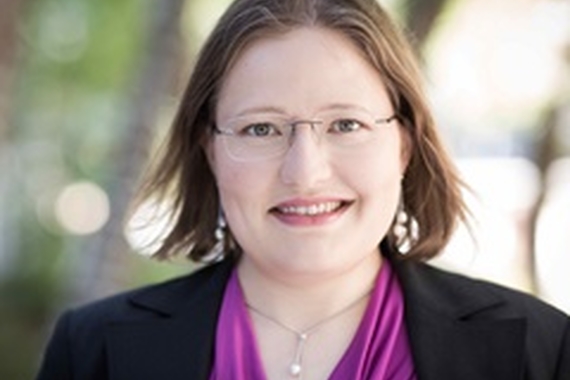
Anne Kaduk (Ph.D. awarded 2017)
Research Associate
Mayo Clinic
I chose the sociology department at the University of Minnesota over several other options because of the collaborative and friendly atmosphere among graduate students as well as the accomplished and accessible faculty members. I was initially interested in a different research topic than I ended up pursuing, and I found wonderful advising on the topic I ended up pursuing. I also valued that the department guaranteed funding for the same number of years to all students, which promoted a collegial environment.
A key strength of the program was the supportive faculty members I worked with. I had the opportunity to be a research assistant for most of my time in the program with a project related to my research interests. I learned a lot from the more experienced people on the project and gained in-depth experience with interdisciplinary research and communicating research to a public audience.
My experience learning and using a variety of quantitative research methods at the University of Minnesota is consistently useful in my work at Facebook. I also gained experience working on several interdisciplinary projects while at the University of Minnesota, which helps me work with people from multiple disciplines in my day-to-day job.
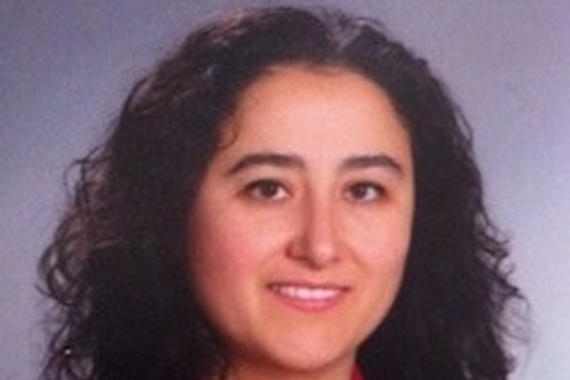
Aysegul Kozak (Ph.D. awarded 2013)
Associate Professor
Uludag University
The School of Business Department of Management Bursa, Turkey
There were a variety of reasons that led me to choose the Department of Socıology at the University of Minnesota to pursue a graduate degree. One of the main reasons that attracted me to the Sociology program at UMN was the fact that the program included the faculty that were well known and respected within the sociology community as a whole and especially in the field of sociology that I was interested in specializing in. The fact that teachers and professors had great relationships with one another and were supporting as well as respecting each other provided a wonderful academic environment. Diversity was also an important criterion for me and this was also one of the strengths of the Sociology program at UMN, the program was well endowed with a wide range of diversity in respect to both faculty and the graduate student population. Our department and our teachers were always very supportive of foreign students and being one myself this was very important and helpful for me.
The UMN Department of Sociology was very much concerned with teaching as well as research and emphasized not only being a good academician but also a good teacher throughout its program. UMN helped prepare me as both a researcher and a teacher in my field, I was given the opportunity to teach undergraduate courses and even a chance to create my own classes and offer them to students as electives. This experience was invaluable for preparing me for my own career and was a tremendous opportunity for a graduate student.
The UMN Sociology program was very supportive of its graduate students; attending conferences, and providing us with the financial support to attend various conferences held nationally as well as internationally. This gave us the opportunity to discover a new academic world outside of our own program and allowed us to learn from and interact with fellow graduate students as well as faculty from many different institutions, all people who were interested in the field of Sociology like ourselves.
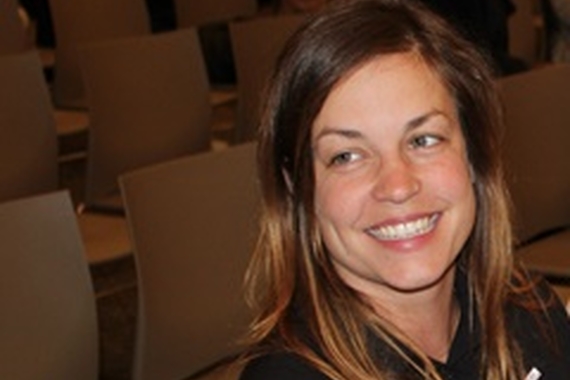
Sarah Esther Lageson (Ph.D. awarded 2015)
Assistant Professor
School of Criminal Justice
Rutgers University-Newark
View Sarah Esther Lageson's Website
I was initially attracted to the diversity of faculty and research areas. I was still navigating the world of sociology and wasn’t quite sure where I would fit in. At Minnesota, there is a broad array of expertise, methodologies, and orientations to the profession. The Twin Cities are also a wonderful place to attend grad school!
The department is very lively! As a student, I was exposed to guest lecturers, invited scholars, reading groups, and a collegiate social atmosphere. I genuinely enjoyed being there. The faculty engage directly with graduate students, offering an array of research opportunities. I worked on projects ranging from field experiments, qualitative fieldwork, and legal research. The broader university also has an impressive institutional and administrative structure. The program gave me the support and flexibility to take courses in other departments, learn from other disciplines, and utilize the extensive research and library support systems.
The program was very hands-on when it came to the job market. Even faculty outside my dissertation committee were there to review my materials, help me with my job talk, and offer advice. I also had the valuable experience of teaching as a graduate student, conducting and presenting my own research, and developing projects with faculty. These concrete experiences at Minnesota have helped me navigate life as an Assistant Professor in many ways. I am very grateful for the faculty, staff, and fellow graduate students at Minnesota Sociology.
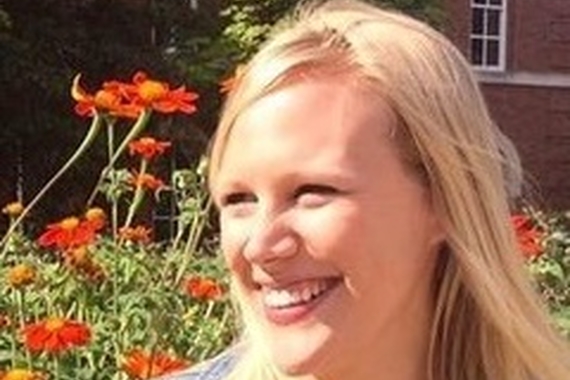
Hollie Nyseth Brehm (Ph.D. awarded 2014)
Assistant Professor of Sociology
The Ohio State University
View Hollie Nyseth Brehm's Website
I was attracted to the University of Minnesota’s Sociology Department because of its emphasis on engaged research and its strength in the areas of human rights and genocide studies. First, the University of Minnesota Sociology Department prizes engaged sociology, and many faculty members value the difference their research can make in responding to pressing social problems. The department further demonstrates its commitment to engaged sociology by housing and involving graduate students in The Society Pages, which seeks to bring sociological research to a broader public. Second, the University of Minnesota is one of the country’s best programs for the study of human rights and genocide. When I started graduate school in 2008, Minnesota was already becoming known as the “Human Rights University,” and many of the department’s faculty members were (and continue to be) at the forefront of the sociology of human rights, mass atrocities, and transitional justice.
One core strength of the program was the supportive atmosphere. I still remember how friendly the students, faculty, and staff were on the visit day, and that friendliness did not waiver throughout my six years in the program. Graduate students encouraged one another and collaborated on research, and faculty members likewise supported graduate students throughout all of their endeavors. I cannot over-emphasize the importance of a culture of encouragement during graduate school; having such a supportive cohort of fellow students and such engaged faculty mentors was pivotal to my graduate school experience.
While there are many answers to this question, the ability to co-author with faculty members stands out. At Minnesota, graduate students have numerous opportunities to work with faculty on collaborative research projects. From funding opportunities like the Graduate Research Partnership Program (GRPP) to an atmosphere that encourages collaboration, it is easy to become involved in research. Throughout my time there, I worked with numerous faculty members on a wide array of projects and published with four of them. This allowed me to learn about research, including how to design a study and how to publish results. In turn, these experiences prepared me to undertake my dissertation and my subsequent research projects with added confidence and perspective.
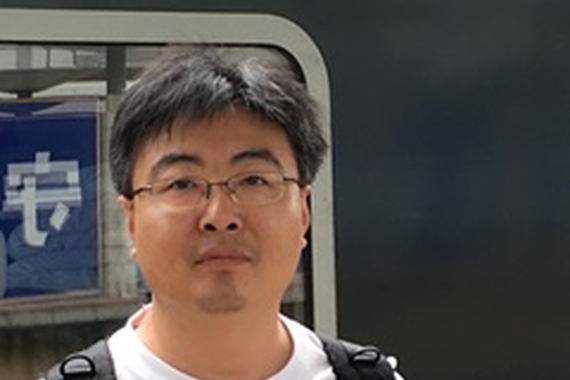
Lei Zhang (Ph.D. awarded 2016)
Assistant Professor
Department of Sociology
University of Colorado, Colorado Springs
International reputation and faculty specialties were major reasons for me to choose UMN. I heard about UMN and its Sociology PhD Program from my friends and my advisor when I was a master's student at the Hong Kong University of Science and Technology. Ranked as global top-20 in social sciences since 2007 by the Academic Ranking of World Universities, UMN was clearly my first choice because I believed that my future professional development in academia depended heavily on the quality of education and research as well as international recognition of the PhD Program. In addition to the ranking, I was further attracted by faculty specialties in quantitative methodology and social network analysis at the Department of Sociology.
It’s too hard to give a complete summary of the strengths of this PhD program. Three items are jingling on my far-from-complete list of program strengths. (1) Supportive faculty: faculty members are always fully prepared for their exciting courses and they are always ready to give advice after class; (2) Research opportunities: plenty of RA opportunities to apply what I learned from classes to real research; (3) International vision: faculty members and PhD students of this program are encouraged to develop highly diversified research topics that address sociological questions in different cultural contexts.
What makes joining this PhD program the most important life course event for me is that this program gradually prepared me to become a tenure-track faculty. First, this program offered an interesting course, “Sociology of Higher Education,” which situated new PhD students into the American context of higher education, introduced available teaching resources, and emphasized effective teaching styles and practice. Second, this program encouraged PhD students to accumulate valuable teaching experience via broad choices of TAship and chances to be graduate instructors. Personally, via repeated teaching practice of social statistics, I was very confident and fully ready to teach when I started my career in 2016. Finally, various resources, such as faculty member advice, discussion panels, invited guest lectures on job search, and sharing of job-seeking skills across cohorts thoroughly prepared PhD students for the fierce competition of today’s academic job market.